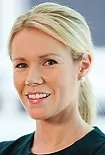Facebook, Google, and other online platforms are racing to curb advertising content that inappropriately capitalises off the Coronavirus pandemic.
With an influx of misinformation hitting social media, the companies are scrambling to stop advertising which exploits the public health emergency. Facebook recently prohibited advertisements that claim to prevent or cure Coronavirus, and those that generate hysteria by advertising 'limited supplies' of therapeutic goods like face masks. Google also issued a statement claiming to have blocked tens of thousands of advertisements attempting to capitalise on the Coronavirus situation.
In Australia, publishing incorrect and inappropriate advertising content about therapeutic goods in relation to Coronavirus potentially contravenes the Therapeutic Goods Act 1989 and the Therapeutic Goods Advertising Code. The Therapeutic Goods Administration (TGA) can impose a range of penalties and sanctions upon advertisers that do not comply with these rules, including imprisonment and severe financial penalties.
On 10 March 2020, the TGA released an update on the key points advertisers should know about the making of therapeutic use claims about therapeutic goods in relation to Coronavirus. Companies should be particularly aware of the following:
- 'therapeutic use claim' includes claims, for example, about a particular product preventing the spread of Coronavirus, or increasing one's immunity to the virus;
- any advertisement for therapeutic goods which refers to Coronavirus either explicitly or implicitly must be approved by the TGA prior to use because it is classified as a 'restricted representation';
- clinical evidence must support any therapeutic use claims made in relation to Coronavirus;
- advertisements cannot be inconsistent with any current public health campaigns, such as the advice provided on the Department of Health Coronavirus webpage and state and territory health department websites; and
- products such as face masks, disinfectants, supplements, medications and other medical devices all fall under these rules.
Additionally, advertisers that intend to explicitly promote a disinfectant as killing Coronavirus, must have conducted studies with Coronavirus to prove this. Merely complying with the Therapeutic Goods Orders which relate to disinfectants is insufficient.
Where to from here?
The TGA has indicated that it is actively supervising the inappropriate advertisement of therapeutic goods in relation to Coronavirus, so advertisers should expect to see increased compliance and enforcement action.
McCullough Robertson will monitor further updates from the TGA and communicate these accordingly. In the meantime, advertisers should be particularly cautious about the content they publish, ensuring that they obtain prior TGA approval for any therapeutic goods advertisements referring to Coronavirus.
The content of this article is intended to provide a general guide to the subject matter. Specialist advice should be sought about your specific circumstances.

